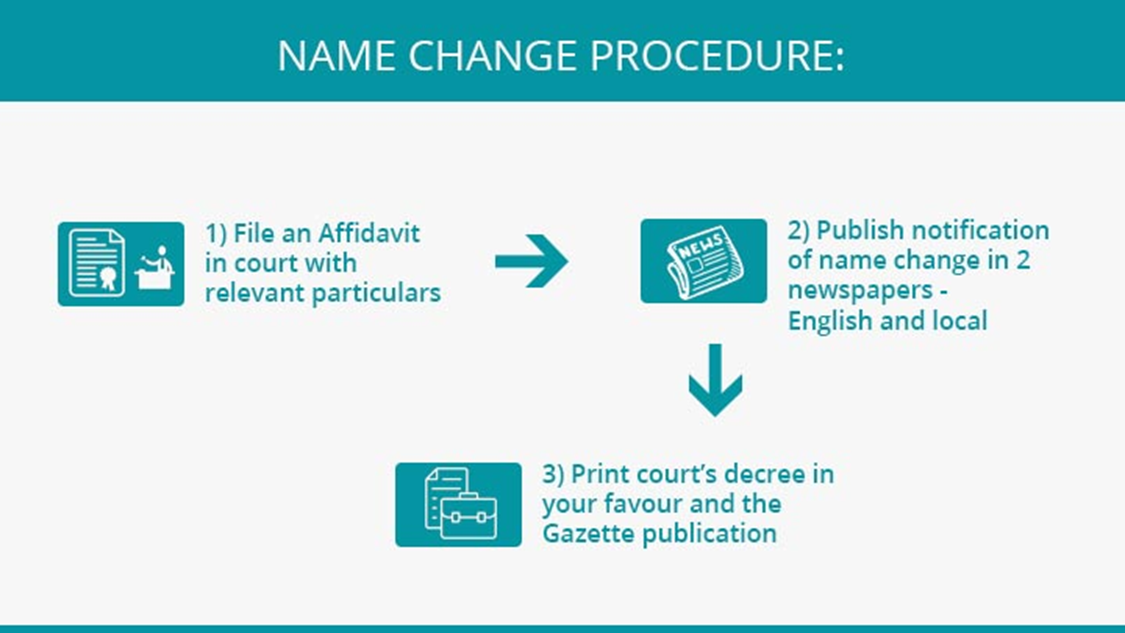RIGHT TO CHANGE ONE’S NAME

Copyright infringement not intended
Context: The right to change one's name is a fundamental right guaranteed by Article 21 of the Indian Constitution, which guarantees the right to life and personal liberty. Recently, two Indian High Courts confirmed this privilege, allowing persons to change their names on educational diplomas.
Details
- The right to change one's name is a fundamental right that is protected by the Constitution of India under Article 21, which guarantees the right to life and personal liberty.
- This right is not only about the freedom to choose one's identity but also about the dignity and self-respect of an individual.
- Recently, two High Courts of India have upheld this right and allowed people to change their names on their educational certificates.
Md. Sameer Rao v/s State of U.P
- The Allahabad High Court, in the case of Md. Sameer Rao vs. State of U.P. ruled that the petitioner, who was formerly known as Shahnawaz, had the right to change his name to Md. Sameer Rao and get it reflected on his High School and Intermediate certificates.
- The petitioner had followed the due procedure of publishing his changed name in a newspaper and the Gazette of India, but the Board had rejected his application on the ground that it was not satisfied with his reasons for changing his name.
Court Verdict
- The court held that the Board had no authority to question the petitioner's motives or interfere with his personal choice, as long as he had complied with the legal formalities.
- The court observed that the right to keep or change one's name is vested in every citizen under Articles 19(1)(a), 21, and 14 of the Constitution, and that it cannot be curtailed by any arbitrary or unreasonable restrictions.
Sadanand & Anr. vs CBSE & Ors
- The Delhi High Court, in the case of Sadanand & Anr. vs CBSE & Ors., allowed a similar plea filed by two brothers who wanted to change their father's surname from 'Mochi' to 'Nayak' on their Class 10 and 12 Board certificates.
- Their father had changed his surname due to caste atrocities and discrimination and had got it updated on various public documents.
- CBSE had refused to change their certificates, citing its by-laws that did not permit any alteration or correction in the name or surname after a period of ten years from the date of publication of results.
Court Verdict
- The court quashed CBSE's letter and directed it to issue fresh certificates with the father's new surname.
- The court noted that the right to identity is an "intrinsic part" of the right to life under Article 21 and that it includes the right to have one's name or surname as per one's choice.
These two judgments have reaffirmed the importance of respecting one's autonomy and self-expression in matters of personal identity. They have also highlighted the need for updating the laws and rules governing name changes in India so that they are in tune with the constitutional values and principles.
How to Change Name Legally in India
About
- Changing your name is a personal decision that can have various reasons and benefits, such as reflecting your identity, professional advancement, or personal preference. However, changing your name is not as simple as just writing it differently on a piece of paper.
- For changing the name you need to follow a legal procedure that involves several steps and documents to ensure that your name change is recognized by the government and other authorities.
The legal procedure for changing a name
Step 1: Determine the Reason for the Name Change
- The first step in changing your name legally in India is to determine the reason for the name change. Some common reasons for name changes include marriage, divorce, religious conversion, or simply wanting to change your name.
- Understanding the reason for the name change can help you decide the appropriate legal process for the name change. For example, if you are changing your name due to marriage, you might need to provide a copy of your marriage certificate along with other documents.
- Similarly, if you are changing your name due to religious conversion, you might need to provide a certificate from the religious authority that confirms your conversion.
Step 2: Draft an Affidavit
- The next step is to draft an affidavit stating the reason for the name change. An affidavit is a legal document that is used to state facts under oath.
- The affidavit should include your current name, the desired new name, and the reason for the change.
- The affidavit should be on a stamp paper of the appropriate value as per the state where you reside and should be attested by a notary public.
- The affidavit serves as an important and legal document for all future references, filings, and legal formalities.
Step 3: Publish a Notification in the Gazette of India
- The next step in the name change process is to publish a notification in the Gazette of India. The Gazette of India is a publication of the Government of India that contains official government notifications, including name change notifications.
- The notification should be in the prescribed format and published in at least two local newspapers (one English newspaper and one regional newspaper published in the official language of the State).
- The notification should include your old and new names, your address, and the date of publication. You should keep copies of these newspapers (with the name change published) for future reference and use.
Step 4: Apply for a Name Change Deed
- After publishing the notification in the Gazette of India, the next step is to apply for a name change deed.
- The name change deed is a legal document that confirms the name change and includes the details of the old and new names.
- The deed should be on a stamp paper of the appropriate value as per the state where you reside and should be signed by two witnesses.
- The deed should also be attested by a notary public.
Step 5: Submit the Name Change Deed to the Relevant Authorities
- The final step is to submit the name change deed to the relevant authorities, such as the passport office, bank, and other government agencies, to update their records with your new name. You may also need to provide additional documents, such as a copy of the Gazette notification and the affidavit, to update their records.
- You should also update your documents, such as your PAN card, Aadhaar card, voter ID card, driving license, etc., with your new name.
Implications of Changing Your Name Legally in India
- Changing the name can have various implications that one should be aware of before doing so.
Some of these implications are:
- You will have to use your new name for all legal purposes and transactions.
- You will have to inform all your contacts and acquaintances about your new name and request them to address you accordingly.
- You will have to update all your online accounts and profiles with your new name.
- You will have to bear the cost and time involved in changing your name legally and updating your documents.
- You may face some difficulties or confusion while travelling abroad or dealing with foreign authorities with your new name.
Conclusion
- The process of changing one’s name in India involves several steps, such as drafting an affidavit, publishing a notification in the Gazette of India, applying for a name change deed, and submitting the name change deed to the relevant authorities. Changing your name can have various benefits, such as reflecting your identity, professional advancement, or personal preference. However, changing your name can also have some implications, such as updating your records and documents, informing your contacts and acquaintances, and dealing with foreign authorities. Therefore, one should carefully consider the pros and cons of changing their name before opting for it.
Must Read Articles:
Personality rights: https://www.iasgyan.in/daily-current-affairs/personality-rights
|
PRACTICE QUESTION Q. The right to keep or change one's name is vested in every citizen under which of the following Articles? 1. Article 14 2. Article 19 3. Article 21 4. Article 22 How many of the above statements are correct? A) Only 1 B) Only 2 C) Only 3 D) All Answer: C Explanation: The Allahabad High Court observed that the right to keep or change one's name is vested in every citizen under Articles 19(1)(a), 21, and 14 of the Constitution, and that it cannot be curtailed by any arbitrary or unreasonable restrictions. |





1.png)
